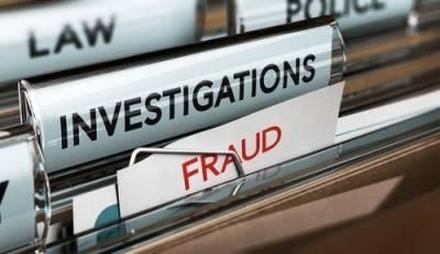TELEPHONES ANSWERED 24 HOURS A DAY
Some Examples of Federal White-Collar Crimes
 White-collar crimes are non-violent offenses that are often prosecuted against business professionals. These crimes are typically motivated by gain and are characterized by deception or concealment. A goal of a white-collar crime is benefiting in regard to money, property, or services. In these cases, a prosecutor will typically rely on paper trails and digital history rather than physical evidence such as DNA.
White-collar crimes are non-violent offenses that are often prosecuted against business professionals. These crimes are typically motivated by gain and are characterized by deception or concealment. A goal of a white-collar crime is benefiting in regard to money, property, or services. In these cases, a prosecutor will typically rely on paper trails and digital history rather than physical evidence such as DNA.
Understanding White-Collar Crime
The term white collar crime began to be used around 1939 and is a broad term for a variety of offenses. Since there are many violations that are considered white collar crimes, the consequences can vary. Possible penalties include fines, probation, community service, and imprisonment.
Getting charged with a white-collar crime can ruin your reputation, business, and lifestyle, and it is important to understand the nature of the charges and the best way to respond to them. Some violations that are considered white collar crimes include:
-
Money Laundering - This offense involves the process of making money one way but manipulating it to appear as if it came from another source. If money is gained illegally, the funds may be made to appear clean by routing them through a legal business. Money laundering can also be used to evade taxes and hide funds, and the money may be used to fund illegal activities such as drug trafficking.
-
Identity Theft - Using another person's information for financial gain is considered identity theft. With recent technological advances, it is easier than ever to get a person’s information digitally. Over the past several years, many popular retailers have experienced security breaches where customers’ credit card information has been stolen. Other examples of identity theft include using stolen social security numbers, legal documents such as birth certificates, or personal information for self-gain.
-
Insurance Fraud - Lying to an insurance company to receive a payout for something that never happened or falsifying information about a claim is a crime. This type of fraud can occur in multiple types of insurance policies. For example, a person who intentionally burns their house down and says it was an accident in order to collect home insurance is committing fraud. Other common types of insurance fraud involve car theft, car accident damage, and health insurance.
White-collar crimes can take a long time to investigate, and they are often prosecuted by the federal government. The investigation will usually be performed before charges are filed, so it is possible that you may not be aware that you are a suspect until you are formally charged with a crime. When facing these types of charges, you should consult with an attorney as soon as possible to determine your options for defense.
Contact a Chicago Federal White-Collar Crime Defense Lawyer
A misunderstanding by the federal government can put you and your livelihood at risk. When facing charges such as money laundering, identity theft, or insurance fraud, you will want an experienced greater Chicago federal criminal defense attorney from Law Offices of Hal M. Garfinkel LLC, Chicago Criminal Defense Attorney to protect your rights and formulate a solid defense strategy. Call our offices at 312-629-0669 to schedule a free consultation.
Source:
https://www.fbi.gov/investigate/white-collar-crime




